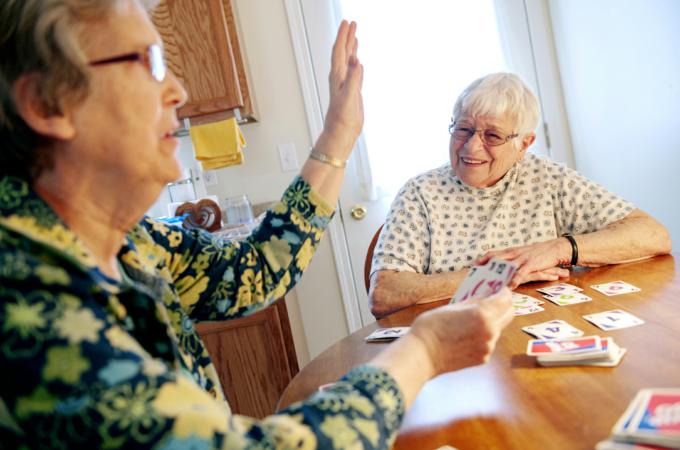Friends are good for your health
While our social instincts may become less intense as we age, our friendships can have a significant impact on how we feel. In various studies, older adults who maintained active friendships were shown to be happier and to live longer. Being connected with others provides us with increased self-confidence and a sense of belonging. At the same time, friends expand our perspectives and make our worlds bigger. Researchers believe that these emotional benefits translate to better health in older age.
An extensive study on friendship took place in South Australia, tracking more than 1,500 seniors over a period of 10 years. Researchers at Flinders University found that those seniors with significant friendships in their lives were 22 percent more likely to live longer than those without close friends. Family ties appeared to have no effect on the survival rates of the participants -- seniors without family still lived longer if they had close friends in their lives.
Although the researchers could not say for sure why having friends increased survival rates, they guessed that the reason had to do with reduced stress. The feeling of connection with others is a natural stress reducer; low stress in turn has a positive effect on the immune system, blood pressure and heart health.
Friends may also help ward off dementia. When we socialize we make judgments, form memories, and forge new neural connections. This benefit of "mental exercise" is what leads many to consider moving into senior living communities. An article published in AARP, aptly titled "Friends Make You Smart," focused on Stella, an 86 year old who had begun to withdraw into herself following the death of her husband. In addition to becoming withdrawn, she was also becoming forgetful, skipping meals and often unsure what day it was. That trend was dramatically reversed when Stella's daughter convinced her to move into a nearby assisted living community. According to the article, "Within a month she was applying blush and wearing jewelry. She started playing bridge every week and walking three miles a day."
Stella's experience is one of the most common success stories associated with assisted living. For Stella and others like her, a social environment makes all the difference.
Obstacles to making friends
Socialization in older age is not without challenges. Those living with reduced mobility, chronic pain or other health conditions might feel that attending a social event is too much trouble. Hearing loss is one of the most common and under treated obstacles, affecting our ability to take part in conversations and often leading to our withdrawal from social situations. In many cases, social obstacles can be reduced by addressing hearing loss or other health problems with a doctor.
Living in community
One clear benefit people reap from living in residential communities is that they gain access to new social opportunities. Assisted living communities often include a full schedule of structured events, intellectual stimulation and security. The support provided by a community also entails sharing. The more we interact with others, the more comfortable we become sharing spaces, stories, meals and other aspects of daily life.
Here are a few tips for making new friends and nurturing the friendships you already have:
-- Accept invitations -- when you are invited to an event, go to it.
-- Show an interest in others and maintain a friendly attitude.
-- Adopt a positive, healthy self-image. Try to avoid excessive complaining. Positive energy is a magnet for others who are interested in expanding their own social lives.
-- Volunteering for a cause you care about is a great way to meet people in your community with similar interests.
-- Join a faith community. Being around people who share your personal beliefs and values is a great way to connect with potential friends.
Whether you thrive on a routine of social interactions or require regular periods of solitude to "recharge your batteries," you are likely to benefit from adding a few more social interactions to your daily life.
- Adam Johnson writes for Youville Assisted Living Residences, member of Covenant Health Systems, a Catholic, multi-institutional health and elder care organization serving New England.



















